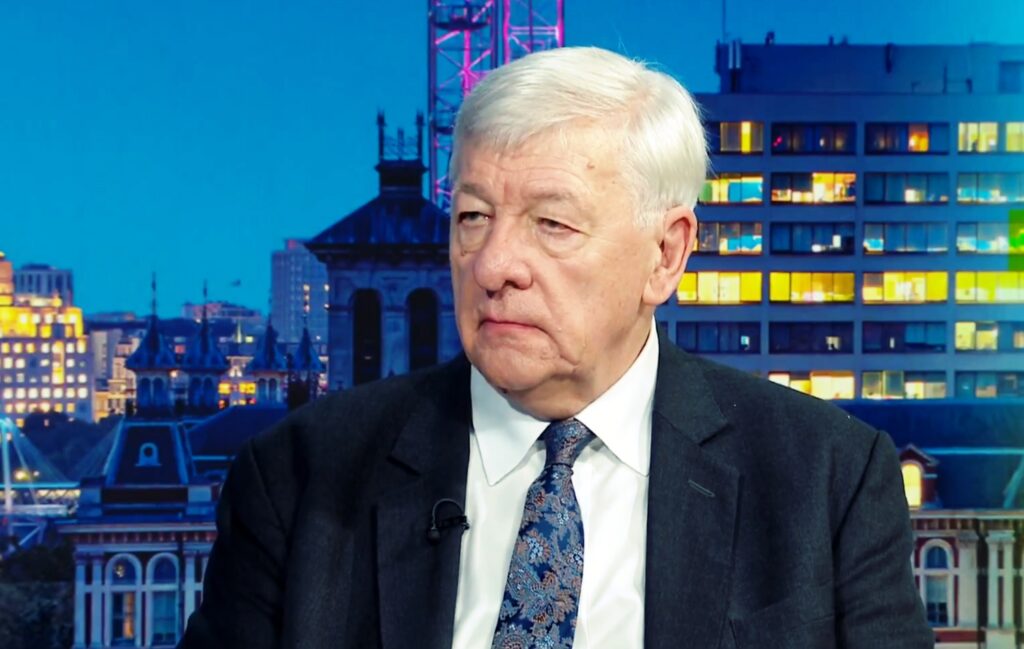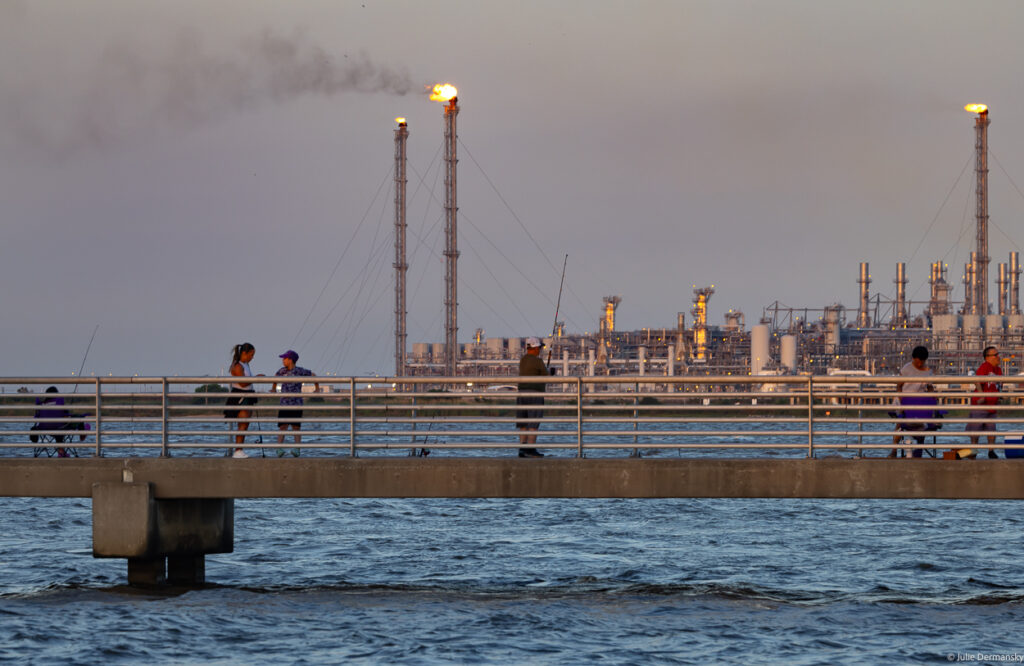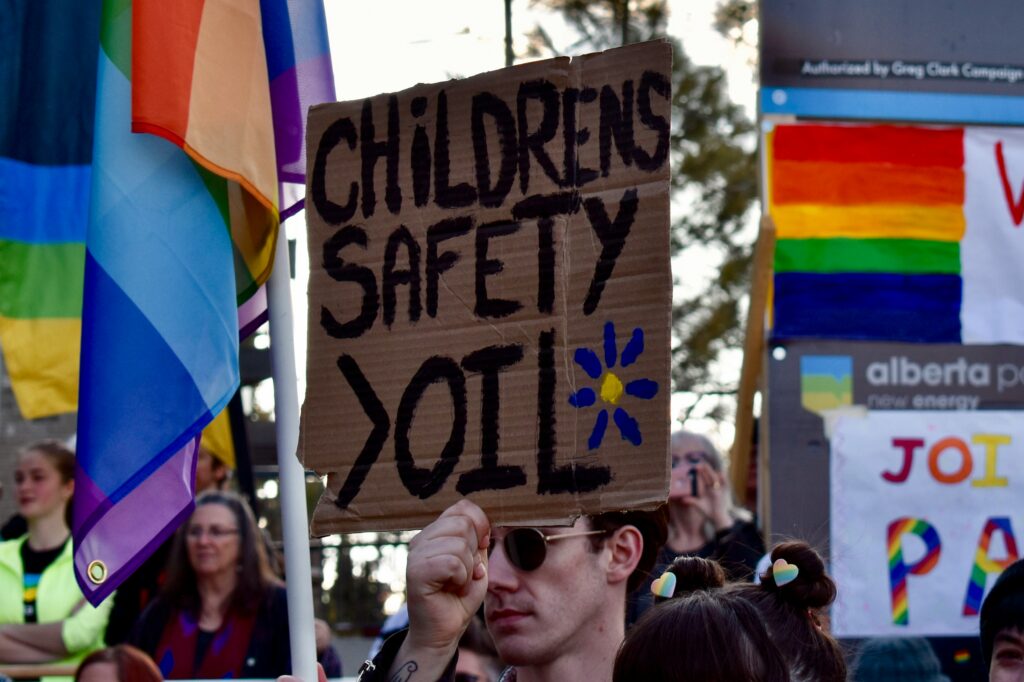“It’s coming,” a baritone voice warns as images of a fiery hellscape flash across the screen. “Lies. Deception,” someone whispers, just before the narrator launches into a diatribe about Josh Fox’s new documentary, Gasland Part II, in a youtube clip whose esthetic falls somewhere between b-horror movie and election season attack ad. It’s the sort of video that might be campy if it wasn’t made with an actual budget.
Posted last November under the account energyforamerica, the faux trailer is one of the first hits in a Gasland 2 youtube search.
“I think it’s kinda unprecedented,” Mr. Fox said after the mock trailer appeared on youtube five months ago. “I don’t know of any other trailer that has attacked a film before even the actual trailer of the film has come out.”
Mr. Fox, the documentarian who made the Emmy-winning Gasland in 2010, and whose new movie Gasland Part II is now making its world premiere at Tribeca, has already withstood an aggressive P.R. campaign the likes of which few journalists and film-makers have ever experienced. The man who forever linked fracking to flaming tap water in the public mind has found himself, once again, in the oil and gas industry’s doghouse.
With funding from an array of oil companies, front groups like Energy in Depth have created entire websites devoted to “debunking” the first-hand reports shown in the first Gasland, produced their own film titled Truthland, and maneuvered behind the scenes to undermine Gasland’s credibility amongst the media.
Now the oil industry is gearing up for a new campaign to attack the sequel. And early signs indicate they plan to pull out all the stops.
Energy for America, which posted the Gasland 2 youtube video, turns out to be an organization that is tied to the Koch brothers and funded by the American Energy Alliance (AEA), the Institute for Energy Research (IER) and Americans for Prosperity, according to Sourcewatch, which adds that all three organizations are funded by the energy industry.
Here’s the anti-Gasland trailer produced by Energy for America:
The youtube plant is just the tip of the iceberg.
Last August, Energy in Depth wrote a letter to HBO, which broadcast Gasland, claiming that the original documentary was seriously flawed. The letter informed the network that Energy in Depth had conveyed to Mr. Fox suggestions for his new movie. The industry’s letter cited statements by outgoing EPA head Lisa Jackson, where she disavowed the idea that her agency had ever officially determined that the fracking process caused chemicals to enter groundwater.
Let’s pause to review the facts here: Ms. Jackson’s comments aside, EPA documents show clearly that as early as 1982, the agency had documented groundwater contamination from fracking, and complained that sealed settlements made documenting more cases difficult. An EPA official who oversaw that report told The New York Times that the case was not unique.
But nonetheless, the baseless claim that fracking has never contaminated groundwater is still repeated by those who support shale gas drilling.
Asked about the letter to HBO, Energy in Depth Communications Director JD Krohn did not respond by press time.
The oil and gas industry is famous for its ad hominum attacks on critics. It launched a similar campaign against the movie Promised Land. The New York Times also came under attack, as did Rolling Stone, when their journalists turned a critical eye toward industry claims.
But Mr. Fox has long been the gas industry’s favorite target. The campaign against Gasland has gone on for years.
The oil and gas industry has backed an entire movie, Truthland, that mocks Gasland and attempts to debunk it. In Truthland, a Susquehanna county housewife sets off on a roadtrip ala Gasland – but the 34-minute movie, produced at the prompting of the industry, has been panned as “essentially an extended infomercial.” Nonetheless, screenings have popped up across the Marcellus region before the Gasland Part II premiere.
Public relations officials brag about dogging Mr. Fox whenever he appears in the media. Jeff Eshelman, Executive Vice-President of Energy in Depth, told attendees at a 2011 industry PR conference that they’ve worked hard to get their critique of Gasland attention.
“That piece has been really successful,” Mr. Eshelman told his audience “because we follow the director Josh Fox, wherever he goes.”
Mr. Eshelman described how Energy in Depth routinely contacts the producers of television shows, like the Daily Show or the Dylan Ratigan show on MSNBC, and feeds the producers industry talking points in the hopes of undermining Mr. Fox’s credibility and encouraging hostile questioning by the hosts of shows.
The oil and gas industry even sent a letter to the State Department, objecting to the agency’s inclusion of Gasland alongside 28 other films in its American Film Showcase after Gasland was nominated for an Oscar.
Nonetheless, Gasland has earned a cult following at the same time it helped to make the term fracking a household word.
“What we’ve seen in the last few years, and I hope it’s peaking, is a completely heightened public awareness around hydraulic fracturing and an increase in active opposition,” the president of the Colorado Oil and Gas Association said in Sept. 2011, according to Natural Gas Watch. “I hate to credit the movie Gasland, but it’s really changed the conversation.”
Gasland featured interviews with people who said they were affected by oil and gas drilling and fracking. Mr. Fox, a documentarian, traveled the U.S. to investigate the impacts of an emerging onshore drilling boom in 2008. What he found raised many questions about the oil and gas industry’s safety record and the impact of drilling on communities nationwide.
The oil and gas industry analyzed every word in the film, looking to “debunk” the statements made by Fox in the documentary. In a widely-ciculated white paper, the industry accused the filmmaker of skewing the facts.
Mr. Fox and others responded directly to that white paper by issuing a 39 page point-by-point response.
The industry made much of tests showing that the methane in Mike Markham’s flaming faucet was “biogenic” – or organic and formed at shallow depths – in nature, claiming this proves that the gas was naturally occurring. The gas wells in that area only produced the other type of gas, thermogenic gas, formed at high pressures deep underground, and therefore the gas coming from Mr. Markham’s water faucet could not have come from fracking.
Of course, this relies on the idea that contamination only “counts” if the problem was directly caused by the hydraulic fracturing process alone – not the process of drilling the gas well through shallower rock formations or the rock disturbances that could be caused by extensive drilling and fracking of multiple well bores, Mr. Fox wrote in his response.
Mr. Fox cut the Gordian knot by pointing out that just because the gas wasn’t thermogenic, that doesn’t mean that the methane didn’t reach Mr. Markham’s tap as the result of oil and gas drilling nearby. Biogenic gas could have been dislodged by the drilling process, he responded.
More to the point, tests at a neighboring water well, whose owners also lit their tapwater in the film, showed the presence of thermogenic gas. Those neighbors settled with the industry and now are subject to a gag order, the report adds.
But by calling the contamination of Mr. Markham’s water into question, industry advocates hope to stall legislation that could help prevent these sorts of incidents.
“The point is not to make a coherent argument,” Mr. Fox said when asked about the industry blowback during Gasland’s first stint on HBO. “The point is to create doubt and to try to create a perception that there is a debate. If there is a debate, then all of the sudden, the science is not in yet and we don’t have to act.”
It is worth acknowledging that in some areas, methane has long been found in drinking water supplies. Towns like Burning Springs were named after the phenomenon. But it is also clear that in some cases, water that was free from methane before drilling began was indeed tainted by the industry’s activities. In Pennsylvania alone, hundreds of violations for faulty shale gas well casings have been issued by regulators.
In his new documentary, Mr. Fox again keeps his focus on the people whose lives have been changed by the shale drilling boom as he travels from the Gulf coast to central Texas, then north to his home in the Delaware River basin.
Mr. Fox recently told his hometown paper that Gasland Part II would continue to follow what’s happened to some of the people whose stories were told in Gasland. He hastened to add that the environment is not the only issue that the film addresses.
“But really, it’s about another layer of contamination due to fracking,” he said, “which is a contamination of our democracy.”
Subscribe to our newsletter
Stay up to date with DeSmog news and alerts







